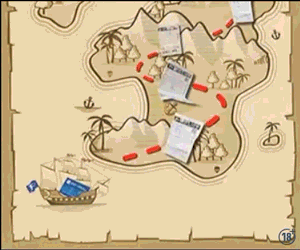Two rounds of peace talks in, and the basic rhythms of Putin’s unique negotiating style are becoming clear: Lie. Bomb. Lie. Bomb. Just a day after a new supposed breakthrough this week in Riyadh on a moratorium on attacks in the Black Sea, Putin’s deadly drones once again swarmed into Kharkiv destroying apartments and stores and injuring 21 people. After Donald Trump spoke to Vladimir Putin earlier this month, the White House claimed that “a future with an improved bilateral relationship between the United States and Russia has huge upside” and spoke of “enormous economic deals and geopolitical stability when peace has been achieved”. Days later Kremlin representatives sat down with their US counterparts in Saudi Arabia and agreed a partial ceasefire suspending attacks on energy infrastructure. Putin claimed that he had issued orders to cancel an imminent strike. Later that very night Russian missiles rained down on Kyiv, killing a young family in their beds. This week the pattern has repeated. Putin’s envoys claimed that a ceasefire on the Black Sea had been thrashed out that would allow free export of Russian grain and fertilisers. Another lie, or at least a distraction, because neither commodity is currently sanctioned or restricted. What the Kremlin really wants is free passage for its oil tankers and cover for its battered Black Sea Fleet to return to its base at Sevastopol, from which it has been forced to withdraw by Ukrainian missile attacks. And even as the delegations flew home, 86 deadly Iranian-made Shahed drones were rolled out of their containers, assembled, armed and launched at Kharkiv. More than 20 made it through Ukrainian defences, bringing more fire and fury to Kharkiv’s long-suffering civilians even as Putin claimed to be talking peace.
But perhaps Trump and his billionaire oil lawyer envoy Steve Witkoff aren’t the suckers that Putin takes them for. For one, the White House’s breathless – some might say witless – optimism at the beginning of the talks has evaporated. The tone of the readout of this week’s talks in Riyadh was bone-dry: “The United States and Russia will continue working toward achieving a durable and lasting peace.” Trump himself seems to be waking up to the realisation that the Kremlin is playing him for a fool. “I think that Russia wants to see an end to it, but it could be they’re dragging their feet,” Trump told Newsmax host Greg Kelly on Tuesday. Trump, extraordinarily, admitted to using the same kind of delaying tactics in his own business career. “I’ve done it over the years, you know; I don’t want to sign a contract, I want to sort of stay in the game, but maybe I don’t want to do it, quite … I’m not sure.” In other words: I see you, Putin, and I know what you’re doing. The US also refused to roll over on the Kremlin’s demand that sanctions on specific banks involved in grain exports be lifted. That’s still very far from the US actually getting tough on Putin. But at least the rosy atmospherics seem to have given way to a period of hard horse-trading. “I think Russia would like to see it end, and I think Zelensky would like to see it end,” Trump told Newsmax. We can only hope that he is right. But Putin is hardly acting like a leader who is serious about peace.


His continued aerial attacks seem a calculated two fingers to the White House. And at the negotiating table in Saudi every one of his supposed concessions actually favour Russia and damage Ukraine. Russian strikes on power stations and electricity infrastructure have destroyed Ukraine’s economy and plunged millions into cold and darkness – hard punishment, but people have learned to cope. But Kyiv’s assaults deep into Russia have been systematically destroying Moscow’s ability to refine, store and transport oil – something that strikes at the very heart of Putin’s war machine. Stopping attacks on energy clearly favours the Kremlin. Ditto with a ceasefire at sea. The peace process is menaced by two competing jeopardies: Trump’s impatience for a ceasefire on the one hand and Putin’s arrogance and delusion on the other. Trump is often criticised for being too sympathetic towards Putin. But in truth Putin, too, may be fatally underestimating Trump’s short temper, his sensitivity to humiliation, and the enormous economic and military power he wields. Broaden your horizons with award-winning British journalism. Try The Telegraph free for 1 month with unlimited access to our award-winning website, exclusive app, money-saving offers and more.





































